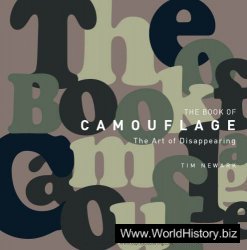Thucydides was deeply concerned with public action and especially with the problem of the free rider, that is, the defector who rationally seeks to share in the benefits of others’ social cooperation without assuming any of the costs. Thucydides saw that free riding was likely in a large and prosperous democracy: By expanding the range of choices available to free citizens, and by eliminating social sanctions typical of intimate and traditional Greek communities, Athenian-style democracy also expanded free riders’ opportunities. The relationship between political regime and the organization of useful knowledge is, for Thucydides, integrally related to the problem of collective political action. Thucydides shows his readers how Athens’ distinctive knowledge regime helped it do well in competition with rivals. If Herodotus’ account focuses our attention on public formation and knowledge aggregation, Thucydides’ analysis suggests that outstanding democratic performance was due to conjoining productive technical innovations with a sustained capacity for reaping benefits associated with social learning. If innovation and learning were brought into balance, the returns to social cooperation would more than make up for losses to free riders - especially if democratic culture identified and sanctioned free riding and ifdemocratic institutions prevented known free riders from taking an undeserved share of social goods. The key problem, as he also shows, is that balancing innovation and learning is difficult.
In his assessment of Pericles at 2.65, Thucydides offers a retrospective of the Peloponnesian War and emphasizes the greatness of Athenian resources on the eve of the war. Thucydides is at pains to show that Athens could have won: Pericles was rightly confident that Athens could prevail by avoiding foolish strategic errors, given Athens’ superiority in human and material resources - resources that Thucydides shows to be the product of reaping the benefits of internal social cooperation, and reinvesting them in an empire that enriched each individual Athenian (to the extent that he cooperated with his fellows) and the Athenian state. The empire was sustained by the rational preference of weaker states for a hegemonic state that would protect them (in its own interest) from pirates and other powerful states (1.7-8). These points are reinforced in Pericles’ two assembly speeches in Thucydides’ text (1.40-4, 2.60-4), which focus on the correlation between Athenian resources and social cohesion: on the key importance of remaining a public rather than devolving into interest subgroups concerned only with strategic bargaining. Much of Thucydides’ history recounts how Athens’ extraordinary resources were subsequently squandered by inferior post-Periclean leaders, who proved incapable of managing a willful demos. That failure of leadership was exacerbated, he suggests, first because the high level of rational social cooperation that had characterized Athens in the expansive prewar years was not fully sustained under the pressure of war, and second because Athens’ opponents adopted Athenian habits of innovation and social learning.6
In Thucydides’ history, political culture and institutions provide the keys to explaining rationally cooperative social behavior. In the funeral oration (2.35-46) Pericles asserts that Athens is characterized by a culture of open access and describes Athens’ participatory decision-making process. His argument bears directly on the integration of rational choices with useful knowledge: Rather than depending on a homogenizing Spartan-style ideology of mandatory sameness, Athenians are diverse in their interests and capacities and free to make choices accordingly. Unlike the secretive, discipline-obsessed Spartans, Athenians enjoy an equal opportunity to learn from all those public sources that render the city an ‘‘openly shared common possession’’ (2.39.1), as well as an equal opportunity to share the fruits of cooperation. Pericles celebrates the fact that there is no standard Athenian civic curriculum nor specialized institutions for teaching courage; free citizens freely choose to fight when necessary as a result of living in a free city. There are no preestablished criteria for assuming the role of public innovator; anyone might be capable of demonstrating excellence in some domain - by possessing political skills and sharing what he knows, each citizen could benefit himself and his society.
The burden of Pericles’ speech is that democratic Athens is distinctively meritocratic, distinctively free and open, and therefore distinctively great. Pericles describes Athens as a community of responsibly self-interested individuals. He asserts that politically relevant knowledge is indeed widespread among Athenian citizens - even among those who focus primarily upon their own affairs. He explains the role of mutual instruction and deliberative rhetoric in democratic decision-making. Pericles’ Athenians recognize that only some people will actually serve as public speakers. But all citizens are expected to participate in making decisions as responsive members of the judging audience of voters. This means that voters are not passive recipients of public speakers’ rhetorical performances; rather they are active judges in their own and the public interest, and fully capable of dismissing incompetents. Pericles acknowledges the possibility that some may seek to free ride by sharing in the public goods produced by the political activity of others: Those who do not engage in the give and take of mutual instruction, those concerned only with their private ends, are not just ‘‘apolitical’’ but ‘‘useless’’: contemptible and deserving of being sanctioned as such (2.40).7
According to Thucydides’ Pericles, it is a conjunction of a unique form of government with a unique public culture that fosters the integration of public and private interests. This in turn facilitates a unique Athenian capacity to conjoin bold and decisive action with thoughtful public deliberations. Deliberation over policy becomes a public process of teaching and learning by accessing openly available information and judging reasoned arguments. Thucydides’ Pericles describes the democratic collectivity as a public of choice-making individuals, each freely striving to improve his personal position. Pericles overtly contrasts this Athenian ‘‘public action based’’ understanding of the cooperative group that emerges from an equilibrium among the rational individual choices made by free agents, with the Spartans’ compulsory approach to community and hostility to any expression of individual difference. Pericles’ funeral speech culminates in his vision of Athens as an education to its own citizen and as a model that other states might fruitfully seek to emulate. Exactly how this emulation will manage to coexist with sustained Athenian uniqueness, he does not say; Thucydides’ subsequent narrative shows it will be a formidable task under the ever-changing conditions of total war.




 World History
World History









